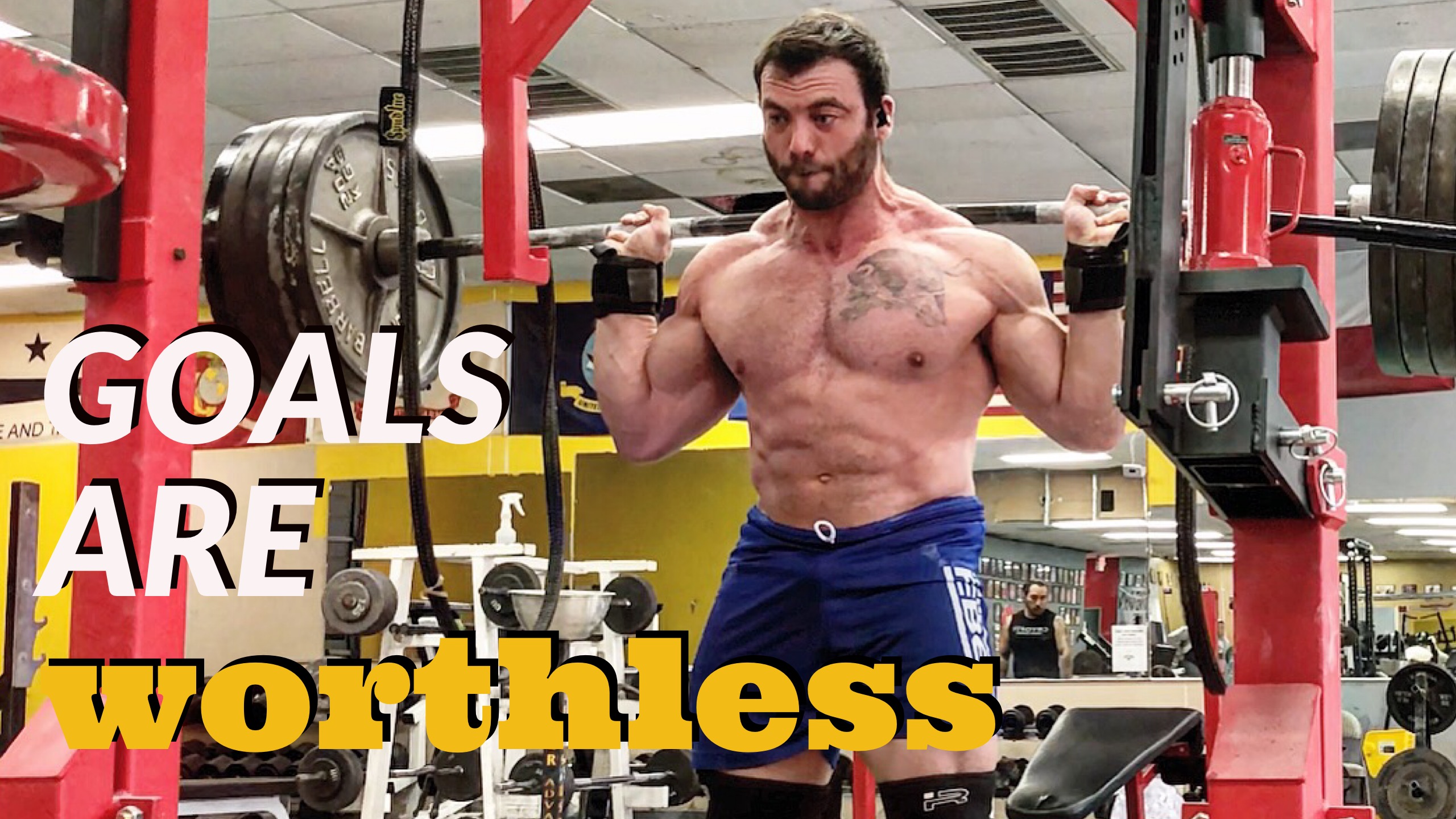
...if you don’t hold yourself accountable for setting and reaching them. My goals for this year were to set an all-time world record in powerlifting and compete in a bodybuilding show. I only accomplished the first, because after setting those goals, I chose to compete in the U.S. Open, which took up a significant chunk of my time and effort. I think that decision was a good one, so I’m not beating myself up over failing to hit the stage.
You shouldn’t beat yourself up if you failed to achieve any of your goals, either – but you should analyze what happened, and figure out why you failed and how you can improve in the future. That’s easy to say but tough to do. In school and business, most people tend to be task oriented: focused on how they do work, rather than on exactly what they accomplish relative to others. Think about it: if you cram for a test or pull an all-nighter to put together a killer report, you’re probably going to be proud of yourself for doing so – not pissed because the guy in the next row got a better grade or had a sharper Powerpoint presentation.
But in sport, we’re often outcome oriented. In other words, you can beat body to shit over a brutal 16-week meet prep and give every ounce of blood, sweat, and tears you’ve got, but if you miss that PR, you’re still going to feel like all of your effort was wasted. I get that. Sports, including powerlifting, are usually inherently competitive, and so we naturally judge ourselves relative to others; and judging ourselves or anyone else is a very ego-driven process.
Unfortunately, while it’s natural and common, outcome orientation with regard to goal-setting is a pretty self-defeating mindset. Here’s why:
Task Orientation Produces Long-Term Results
While we may judge ourselves on our PRs, in truth, success in powerlifting comes from consistency and effort. Years and years of pushing hard in the gym despite all the ups and downs produces champions – not that one moonshot meet where you hit a massive PR. In fact, those perfect days often hurt our long-term potential, because we push so hard to set a new personal best (there’s that outcome orientation again) that we risk injury and overtraining, and set unrealistic expectations in the process.
Task orientation, on the other hand, leads to well-directed effort. If you walk into the gym determined to focus on your training instead of chatting; if you make sure you devote the necessary time to warming up each session; if you resolve to give 100% on every work set; and if you do all those things consistently for five years, then you’re going to be a hell of a lot stronger than you are now. More importantly, the ups and downs that are inherent, not just to training but to life, won’t ever throw you for a loop.
Your Ego Creates Anxiety and Doubt
I already mentioned unrealistic expectations, but they’re worth investigating more closely. Besides directing our attention at short-term results over long-term consistency, outcome orientation and ego often decrease self-efficacy (an academic term for confidence, basically). That’s because, when we’re outcome oriented, we judge the likelihood of success relative to a belief in our own abilities. If we believe our abilities aren’t sufficient – in other words, that we’re not good enough – then, unsurprisingly, we feel more stressed and more anxious.
On the other hand, if we’re task oriented, our abilities are a little less relevant. It doesn’t take a whole lot of special ability to make sure to warm up properly. It doesn’t take a whole lot of ability to try really fucking hard – although some people like to pretend it does. Side note: I see plenty of Internet Gold Standard Bullshit that equates effort with success (“no one is going to work harder than me”). Effort is important, but it’s not everything. You still have to train smart.
You Can’t Control Everything
Athletes in particular are likely to pick goals that involve factors outside of their own influence. For example, if you catch a cold, you'll probably have a hard time hitting your target numbers for a workout or a meet. But you can always train at an RPE 8, regardless of whether you're feeling under the weather. (For what it’s worth, I don’t think RPE training is the best tool for everyone.)
Am I telling you to give up your goals? Hell no. I’m just saying that this New Year’s, instead of spouting on about how this is the year you’ll hit that record or lose those pounds or finally get laid, instead resolve to really focus on your process and give it the attention it deserves. Come next December, you’ll probably be a lot better off.









Reading it the way you display it certainly helps to make this shift easier.
Your "Unfuck Your Program" module lead me here :D